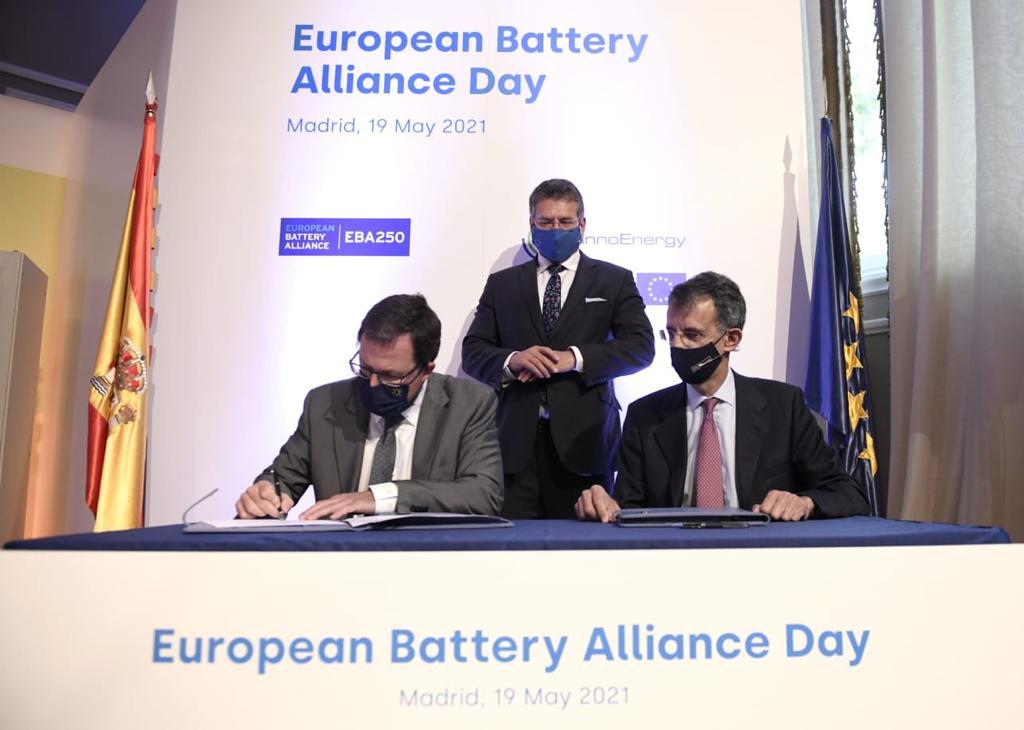EBA250 Academy, launched by EIT InnoEnergy will be hosted in Spain.

Vice-President of the European Commission Maroš Šefčovič was today in Madrid, Spain to participate at the signature of the first Memorandum of Understanding (MoU) to implement the EBA250 Academy, a public-private partnership on learning services by industry for industry covering the entire battery value chain recently launched by EIT InnoEnergy.
During the event, the Secretary General for Industry and Small and Medium Enterprises and President of the School of Industrial Organisation (EOI), Raül Blanco Díaz, and Diego Pavía, CEO of EIT InnoEnergy, signed an agreement that will make Spain the first European country to deploy the EBA250 Battery Academy, a training platform for all the jobs needed in the battery value chain. This platform already has more than 30 training courses, developed since 2018 in collaboration with leading European companies and organisations in the sector, and offers its services through local centres specialised in training workers.
It is estimated that by 2025, around 800,000 workers at European level will need to be trained to be able to operate all the industrial projects (more than 70 already today) that are being deployed in Europe. The EBA250 Battery Academy Platform is the solution to this challenge of such volume and in such a short space of time.
The second collaboration agreement that has been closed during this day has been the one between Juan Manuel Serrano, president of Correos and José María Gómez, CEO of Scoobic. The state-owned company and the electric mobility start-up from Seville have signed an agreement for the research and development of sustainable and efficient last-mile logistics vehicles and solutions specifically designed for the business needs of companies such as Correos.
The agreement is part of the National Energy and Climate Plan, in which one of the main pillars is the reduction of emissions associated with mobility and freight transport, which represent approximately a quarter of total CO2 emissions in Spain. The plan foresees that from 2023 onwards, all cities with more than 50,000 inhabitants will have low-emission zones with limited access for the most polluting and emitting vehicles. All this is happening at the same time as online commerce is experiencing exponential growth, with estimates of annual growth rates of more than 20% between 2016 and 2024 globally, and which over the last year have been further accelerated by the effects of the pandemic on consumer behaviour.
Read the complete press release, here.


 Share this page
Share this page


